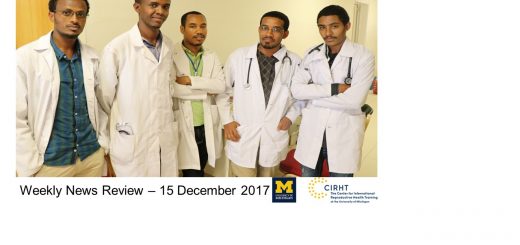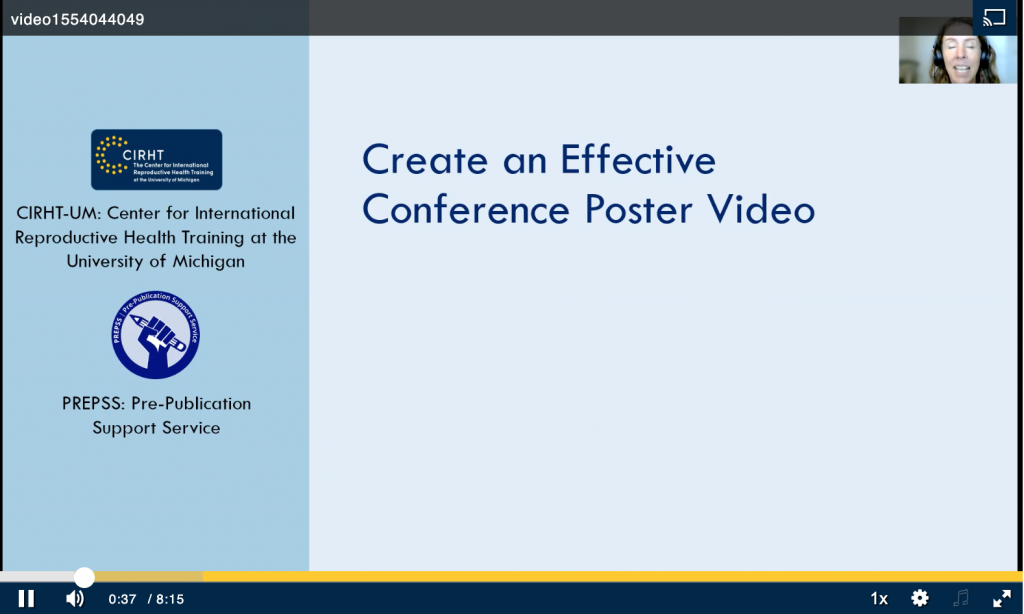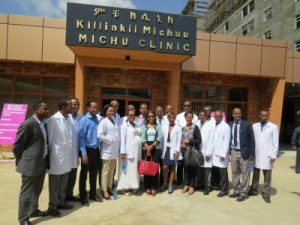News Review – 4 August 2017
Good work, but much more to do
New Guttmacher Institute research “estimates that the number of women of reproductive age in developing regions worldwide who have an unmet need for contraception… has improved but remains high at 214 million women… [who] account for 84% of all unintended pregnancies in developing regions. By satisfying this unmet need for modern contraception, the numbers of unintended pregnancies, unplanned births and abortions would drop by almost three-fourths… the health benefits of helping women to prevent unintended pregnancies are substantial. An estimated 308,000 women in developing countries will die from pregnancy-related causes this year, and 2.7 million babies will die in the first month of life”
The WHO Africa biennial report noted, “At 28%, the African Region has the lowest family planning coverage compared to other regions. The SDG target for maternal mortality is 70 deaths per 100,000 live births; countries in the African Region need to make significant efforts to achieve this target, from the 2015 average of 542/100,000. Increasing uptake of family planning, and providing better quality emergency obstetric care, will be crucial to reducing mortality.”
In Nigeria, two articles on the urgent need for family planning: to “avert 400,000 deaths yearly” and to “prevent 11.7 million unwanted pregnancies in 2016 alone.” A commentary in Reproductive Health addresses the challenge and the opportunity: “Increasingly, the health and rights of adolescents are being recognized and prioritized on the global agenda. This presents us with a “never-before” opportunity to address adolescent contraception… From research evidence and programmatic experience, it is clear that we need to do things differently to meet their needs/fulfil their rights.”
A report from Every Woman Every Child (EWEC) underscores that “progress for women’s, children’s and adolescents’ health—while tremendous—remains partial and fragile.”
The She Decides fund announced that it had reached $300 million, to address the “population myopia” of the US administration, brightly analyzed by two University of Michigan professors.
Other positive news
Inspiring stories from South Sudan where resource-deprived clinics are nevertheless working to end fistula in the country, from a Ugandan refugee camp where despite the challenges maternal mortality is low, and from Tanzania where the work of one passionate midwife is making a difference. South Africa released figures on perinatal deaths, showing a nearly 7% drop in 2015. And an encouraging report from the UNFPA in western Ethiopia, about a local organization’s efforts to get women to give birth in health facilities and to combat FGM and child marriage.
Abortion law debates are active around the world
The upper house of the Chilean Chamber of Deputies finally voted to change the country’s complete prohibition of abortion, allowing for cases in which a woman’s life is in danger, a fetus is unviable, or when a pregnancy results from rape. The law still requires approval of the nation’s courts. Other Latin American countries have similarly harsh restrictions, creating the need for “abortion escorts” in Ecuador (where “insecure abortions represent 15.6 percent of all deaths in the country and are the fifth largest cause of death in general”), “threats to health and lives” in Nicaragua, and the creation of the world’s “first abortion refugee” from El Salvador.
In Ghana, an MP called for liberalized laws because of deaths caused by “black market” abortions. A religious synod in Malawi added its voice to the ongoing debate, proclaiming that legalizing abortion would be “unchristian”. South Africa’s laws give women real choice, yet one parliamentarian there wants to put on heavy restrictions after the 12th week of a pregnancy.
Ireland’s laws came under the scrutiny of the UN Convention Against Torture, in particular the constitution’s Eighth Amendment, saying “that the prohibition and criminalization of abortion subjected the women to cruel, inhuman and degrading treatment.” (Amnesty International released a compelling video about the law’s effects on women.) Across the Irish/Celtic Sea, British attitudes about abortion access are increasingly positive. “Data from the latest British Social Attitudes (BSA) survey reveals… near unanimous support (93%) for abortions when the woman’s health is endangered, while clear majorities support it if the woman does not want the child (70%) or if the couple cannot afford any more children (65%).”
Abortion law developments in the US
Restrictive laws passed in the “red state” legislatures of Alabama, Arkansas, and Tennessee have been struck down or are under review by the courts. In Alaska restrictions were eased, while Texas passed an expansion of its reporting requirements for doctors performing abortions on minors, in the name of “public health”.
The hypocrisy of lip service paid to preserving women’s health as a reason for abortion restriction was laid bare by a new study “commissioned by the Center for Reproductive Rights and Ibis Reproductive Health [which] shows that there’s an inverse correlation between a state’s abortion restrictions and policies that actually support the health of women and children. Unsurprisingly, researchers also found that the more restrictions a state has on abortion, the poorer on average is that state’s outcomes for women and children’s health.” That led NY Times columnist Paul Krugman to ask, “If Americans Love Moms, Why Do We Let Them Die?” and for a commentary in the BMJ to call it a war on US women’s reproductive rights.
Attitude adjustment
An article in Quartz magazine questioned West African politicians who recently committed to allocate 5% of national budgets to family planning programs in order to cut birth rates in the region down to three children per woman by 2030, down from 5.6 children currently,” stating that “African women, who should be at the heart of such family planning discussions, are rarely involved in the decision making process either at the policy level or at home. With so many young girls and women still being excluded from formal education, particularly in sub Saharan Africa, education will play a more important role in population control than enforced rules or even contraception.” A comment from Kristen P. Patterson at PACE said the article missed “the point of rights-based voluntary family planning, which is to give girls and women autonomy over the course of their lives. Education goes hand-in-hand with comprehensive sexual and reproductive health programs, as teens are able to remain in school when they have access to contraception.”
That debate is an example of the need to work on changing attitudes and using appropriate language, and how doing so can have important results. In Nigeria, the government is working to change perceptions about family planning: that it cuts across all cultures and religions, that it benefits women and men, and that it does not arbitrarily restrict the number of children a couple can have. In Latin America, to promote contraceptives to teens, use humor and “don’t be boring.” An excellent special edition of the Health and Human Rights journal looks at the human rights aspects of abortion and is worth a read.
These discussions are not new. A look at the development of family planning activism in the 20th century notes that similar debates have occurred throughout the reproductive rights movement. The conclusion: “At the risk of over-simplifying: the more people talked—sharing good and bad experiences with each other, expressing their concerns to nurses and doctors, and calling out the flawed logic and abuses they saw in some state and international programs—the more power they had to shape the twentieth-century family-planning agenda.”
Complete News Review References:
General/Global
Armed with science (and snark), a gynecologist takes on Trump, Goop, and all manner of bizarre health trends, STAT News, 4 Aug 2017
Promoting Sexual and Reproductive Health Products and Services for Men, HC3, 4 Aug 2017
Reaching Adolescent Girls Everywhere- Increasing Youth Access to Family Planning and Contraceptives, Global Affairs Canada, 4 Aug 2017
‘Our reproductive health laws have come to the attention of the UN Torture Committee’, The Journal (Ireland), 4 Aug 2017
More than half of women who got an abortion last year were using contraception, Marketwatch UK, 4 Aug 2017
Texas House approves more abortion reporting requirements, Texas Tribune, 3 Aug 2017
Both Sides Seek to Drop Alaska Abortion Lawsuit, AP, 3 Aug 2017
British attitudes to abortion, NatCen, 3 Aug 2017
Abortion Escorts in Ecuador are Breaking the Silence, Ms. Magazine, 3 Aug 2017
25 annoying things about being pregnant, Amnesty International, 3 Aug 2017
Chile’s Congress eases strict abortion ban, court battle awaits, Reuters, 3 Aug 2017
Despite pious rhetoric, anti-choice politicians don’t actually care about women’s and children’s health, Salon, 3 Aug 2017
The London Summit and the Outlook for International Family Planning, CSIS, 3 Aug 2017
Abortion ‘reversal’: the latest sham from anti-choice activists trying to end women’s rights, The Guardian, 2 Aug 2017
Can a genetic test really boost your odds of becoming pregnant?, STAT News, 2 Aug 2017
The Reproductive Justice Movement Has A Gender Inclusion Problem, The Establishment, 2 Aug 2017
U.S. scientists edit genome of human embryo, but cast doubt on possibility of ‘designer babies’, STAT News, 2 Aug 2017
Beyond resistance: Protecting women’s reproductive rights, Congressman Earl Blumenauer, 1 Aug 2017
The Benefits of Investing in International Family Planning—and the Price of Slashing Funding, Guttmacher, 1 Aug 2017
2 Red States’ Aggressive, Harmful Abortion Laws Struck Down, attn:, 1 Aug 2017
How to Promote Contraceptives to Teens in Latin America? Don’t Be Boring, Huffington Post, 1 Aug 2017
Fate of Tennessee abortion measure Amendment 1 now up to appeals court, Tennessean, 2 Aug 2017
How Do You Get Pregnant If You Had Cancer? A Reproductive Endocrinologist Explains, Romper, 2 Aug 2017
Retired UCC minister debunks Bible-based opposition to reproductive freedom, NC Policy Watch, 2 Aug 2017
The Sexist Truth Behind Pregnancy-Drinking Laws, Refinery29, 2 Aug 2017
New Every Woman Every Child Global Strategy Progress Report, MHTF, 2 Aug 2017
West African governments want to cut population growth in half, but for whose benefit?, Quartz, 1 Aug 2017
The Reproductive Rights Of Disabled Women Must Not Continue To Be Ignored, Huffington Post, 1 Aug 2017
What it’s like to be the world’s first abortion refugee, Elle, 1 Aug 2017
Population Myopia, Huffington Post, 1 Aug 2017
A midwife is changing how women give birth in Mexico, one baby at a time, STAT News, 31 Jul 2017
Nicaragua: Abortion Ban Threatens Health and Lives, HRW, 31 Jul 2017
How the World Has Responded to Trump’s ‘Global Gag Rule’ on Abortion, World Politics Review, 31 Jul 2017
A Dangerous, ‘Silent Reservoir’ for Gonorrhea: The Throat, The New York Times, 31 Jul 2017
FPs Can Influence Rape Culture by Talking About Consent, AAFP, 31 Jul 2017
If Americans Love Moms, Why Do We Let Them Die?, The New York Times, 29 Jul 2017
Midwifery Is Part of the Culture, MHTF, 28 Jul 2017
Dutch-Led Fund Raises $300 Million To Replace U.S. Funding For Sexual Health, NPR, 28 Jul 2017
Rahel Nardos, M.D. elected to post at Worldwide Fistula Fund, Yale Medical School, 26 Jul 2017
The work of WHO in the African Region 2016-2017: Report of the Regional Director, WHO, 26 Jul 2017
Spreading the Good News: International Family-Planning Activism and Grassroots Information Networks in the 20th Century, History of Knowledge, 13 Jul 2017
Academic
Information literacy of women on family planning in rural communities of Oyo State Nigeria, Information Development, September 2017
Updated Report from the Center for Reproductive Rights, Ibis Reproductive Health: States with Most Abortion Restrictions have the Fewest Supportive Policies for Women, Children, Center for Reproductive Rights, 1 Aug 2017
The war on US women’s reproductive rights, The BMJ, 28 Jul 2017
Gender Empowerment Index: a choice of progress or perfection, The Lancet Global Health, 26 Jul 2017
The SWPER index for women’s empowerment in Africa: development and validation of an index based on survey data, The Lancet Global Health, 26 Jul 2017
A never-before opportunity to strengthen investment and action on adolescent contraception, and what we must do to make full use of it, Reproductive Health, 20 Jul 2017
Pilot study of quality of care training and knowledge in Sub-Saharan African medical schools, International Journal of Medical Education, 7 Jul 2017
Abortion and Human Rights, Health and Human Rights Journal, June 2017
Worldwide prevalence of tocophobia in pregnant women: systematic review and meta-analysis, AOGS, 17 May 2017
Eritrea
Ghinda’e: Committee for maternal and child safety, Shabait, 3 Aug 2017
Ethiopia
Cursed no more – women in western Ethiopia reject childbirth alone in the bush, UNFPA, 28 Jul 2017
Menstrual Hygiene in Ethiopia – the Importance of Including Boys in the Discussion, UNICEF, 26 Jul 2017
Ghana
‘Black market’ abortion is killing our women – MP cries for liberalised laws, Joy FM, 3 Aug 2017
9,100 teens get pregnant in Ashanti in six months, Ghana News Agency, 2 Aug 2017
Kenya
Mandera banks on volunteers to cut maternal deaths, Daily Nation, 1 Aug 2017
Buru Buru sisters set up app to ease women troubles during ‘monthly cycle’, Nairobi News, 1 Aug 2017
Malawi
Legalizing abortion is unchristian says CCAP Synod conference, Nyasa Times, 31 Jul 2017
Mozambique
Closing an HIV lifeline in Africa: the dire impact of Trump’s abortion crackdown, The Guardian, 29 Aug 2017
Nigeria
Family planning can avert 400,000 deaths yearly in Nigeria, Nigerian Tribune, 4 Aug 2017
Traditional/herbal solution for family planning, The Nation, 3 Aug 2017
Re-directing public perception of family planning, PM News, 31 Jul 2017
Sex without pills: Nigeria could have prevented 11.7million unwanted pregnancies in 2016 alone – UN report, Gistmaster, 30 Jul 2017
SDGs May Fail Without Increased Funding For Family Planning, The Independent, 11 Jul 2017
South Africa
Gauteng to provide free sanitary towels for girl children in public schools, ANC Gauteng, 3 Aug 2017
GroundUp: Parliamentarian tries to curb abortion, Daily Maverick, 1 Aug 2017
Statistics South Africa Releases Report On Perinatal Deaths in South Africa, Government of South Africa/AllAfrica, 31 Jul 2017
South Sudan
The Fight to End Fistula in South Sudan, News Deeply, 28 Jul 2017
Tanzania
Loveluck Mwasha: A passionate midwife, The East African, 29 Jul 2017
Uganda
Uganda threatens to reduce funding to family planning, The East African, 2 Aug 2017
Giving birth in the world’s largest refugee camp, The Lily, 2 Aug 2017
13 striking photos that show where women give birth in rural Uganda, Insider, 11 Aug 2016 (ICYMI!)
Zambia
$15m budgeted for reproductive health, ZNBC, 2 Aug 2017
‘Access to reproductive health still a challenge’, Zambia Daily Mail, 30 Jul 2017






